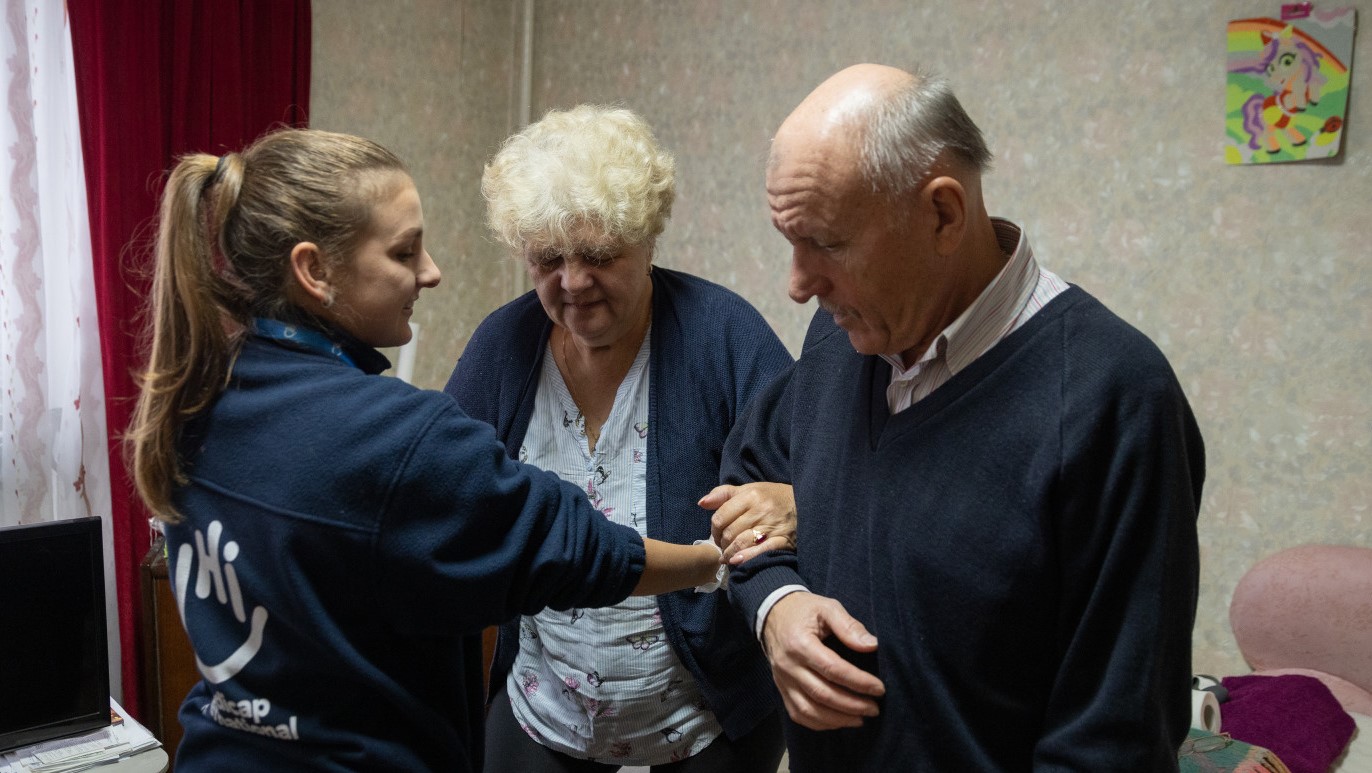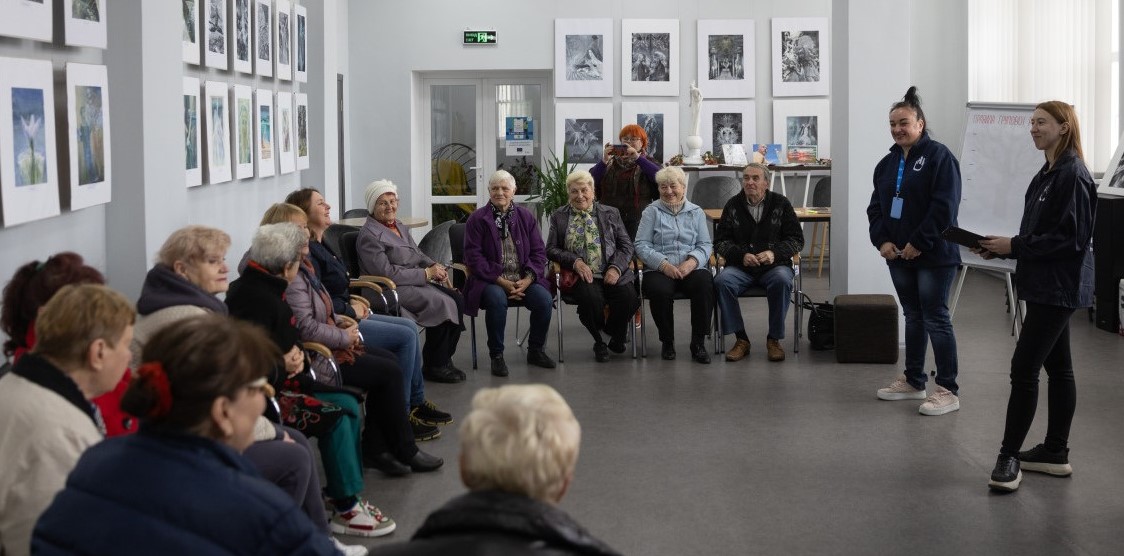HI continues its humanitarian aid in Ukraine for as long as necessary
After more than two years of war in Ukraine, Humanity & Inclusion teams continue to work with people and families displaced by intensive bombing in populated areas.

Irena Strelets, HI psychologist, runs a stress resistance training session at the children's clinical hospital in the city of Dnipropetrovsk. | © T. Nicholson / HI
This armed conflict has already claimed far too many victims. ts many consequences are damaged civilian infrastructure in many parts of the country, very limited access to electricity, telecommunications, food, water, heating and medical care. More than 14 million Ukrainians are still in urgent need of humanitarian aid. Among them are the elderly, large families and people with chronic illnesses or disabilities who are struggling to access basic services, while protection needs remain enormous.
HI has been present in Ukraine since the beginning of hostilities, providing inclusive humanitarian aid that focuses on medical care, distribution of emergency supplies and raising awareness of the dangers of explosive remnants of war.
Rehabilitation care and psychological support
HI teams provide rehabilitation care in shelters, orphanages and health centers, as well as in nine hospitals in Lviv, Kharkiv and Dnipro. They are also helping to increase the capacity of medical staff through training courses in burn treatment centers and follow-up centers for amputees. Focus groups have also been set up in reception centers in Dnipropetrovsk, Poltava and Kharkov, in the east of the country, to offer psychological support to displaced people and their families.
To ensure the continuity of care for patients leaving the hospital, HI has set up a community health project to improve access to rehabilitation, mental health and psychosocial support services. The project is part of a comprehensive approach, targeting people with disabilities and other vulnerable groups living in rural areas close to the front line, such as Dnipropetrovska, Khersonska and Mykolayivska. To this end, mobile teams have been formed and have been working for several months to identify community needs and provide home-based care. These teams are made up of a total of four physiotherapists and psychologists.

© T. Nicholson / HI
Maria Topka is a physiotherapist for HI in the Ukraine, performing mobility exercises with 68-year-old Antonina. Antonina was suffering from cancer and undergoing chemotherapy when the conflict broke out in Vuhledar. She fled with her husband to find refuge in Novomoskovsk and unfortunately suffered a stroke shortly after moving to the new town.
In addition to individual home sessions, HI's mobile teams also run group sessions, so that a large number of Ukrainians can benefit from better access to physical rehabilitation, mental health and psychosocial services.

© T. Nicholson/HI
Yana Hunchenko, psychologist, and Tatiana Kamchatnaya, psychosocial counsellor, run a mental health and psychosocial support session for residents of the Tsarychanka community center in Ukraine. The aim of the session is to reduce the chronic stress they have been under since the war began, and to support them in their day-to-day difficulties.
“People live in a situation of uncertainty and, they say, they also live in a permanent state of tension. If you don't know what's going to happen, you can't plan for the future. The consequence of this chronic stress is a deterioration in general health, particularly among the elderly.” - Irina Yashchuk, HI Health Program Manager in Dnipro.
Since February 2022, a total of 306 employees have carried out the following activities:
- 16,000 rehabilitation sessions.
- 540 healthcare workers have received training in physical rehabilitation and psychological support.
- 6,700 people received psychological support.
- 11,700 hygiene kits were supplied to displaced persons and other vulnerable people.
- 3,200 awareness-raising sessions on the dangers of unexploded ordnance were organized.
HI is continuing its humanitarian work in Ukraine and will continue to do so for as long as it takes, thanks to the invaluable support of our donors. The community health project is made possible thanks in part to the generosity and commitment of the Mirella & Lino Saputo Foundation towards the most vulnerable.




